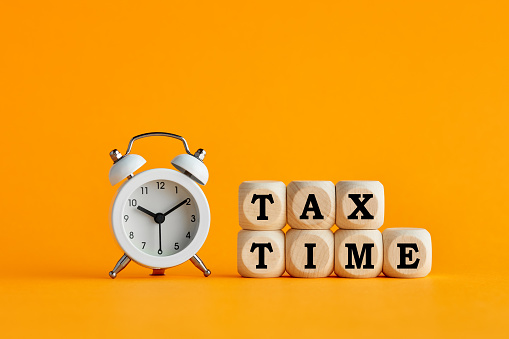Tax rates in Ghana
Tax rates in Ghana: Ghanaian citizens or residents are taxed on their overall income, non-resident individuals are taxed on income gathered in or earned from the country. An organization is considered resident in the event that it is consolidated under the Companies Act 2019 (Act 992) or the board and control of the organization is exercised in Ghana at any period during the tax year.
Companies operating in Ghana are responsible to pay different rates of taxes depending on the sector of activity, location within the country, and whether the company is listed on the Ghana Stock Exchange.
The overall corporate tax rate is 25%. Organizations in the mining and upstream petrol areas pay a corporate tax of 35%, while organizations mainly focused on the hotel industry pay a decreased rate of 22%. For companies engaged in non-traditional exports, the corporate tax rate is 8%.
There are several tax incentives for investors in Ghana which include tax holidays and rebates under the country’s tax laws. Download the Ghana Incentives Inventory for a comprehensive list of the applicable tax incentives.
Corporate Income Tax in Ghana
Business tax in Ghana is known as Corporate income tax (CIT). This tax is charged on a company’s total income source at the end of the company’s accounting income year.
Companies pay tax on their business and investment income also known as gains and profits, which does not include expenses made to obtain the income.
Business Tax Rates in Ghana – Corporate Income Tax Rate in Ghana
The following businesses pay 1% tax during their tax holidays. These businesses pay the actual tax rates after their tax holidays.
These rates are provided by the Ghana Revenue Authority
| Income of a Trust | 25% |
| Company principally engaged in the hotel industry | 22% |
| Financial institutions from loans granted to farming enterprises | 20% |
| Company engaged in the export of non- traditional exports | 8% |
| Manufacturing companies located in regional capitals (except Accra & Tema) | 18.5% |
| Financial institutions from loans granted to a leasing company | 20% |
| Manufacturing companies located outside Accra, Tema and the regional capitals | 12.5% |
| Free Zone Enterprises after 10 years tax holiday (on export of goods and services) | 15% |
| Free Zone Enterprises after 10 years tax holiday (on domestic sales) | 25% |
| Petroleum & Mineral income tax | 35% |
There are several tax incentives for investors in Ghana which include tax holidays and rebates under the country’s tax laws. Download the Ghana Incentives Inventory for a comprehensive list of the applicable tax incentives.
Tax Holidays in Ghana: What are the Tax Benefits for Young Entrepreneurs in Ghana?

According to Ghana Revenue Authority (GRA), Young entrepreneurs who are into businesses such as manufacturing, information and communication technology, agro-processing, energy production, waste processing, tourism and creative arts, and medicinal plants have five years of tax holidays before paying tax in Ghana.
View the complete corporate income tax rate in Ghana. View rates. Planning on starting a business in Ghana? learn everything you need to know about setting up a company in Ghana. Click here.
Investors from these Countries will pay less tax in Ghana (DTAs)
Are you interested in investing in Ghana? If you happen to be from any of the countries listed below, you are exempt from double taxation (DTAs).
The Government of Ghana has ratified 11 Double Taxation Agreements with several countries to further enhance the country’s investment sector.

List of Countries Exempt from Double Taxation in Ghana (DTAs)
- Belgium
- Denmark
- France
- Germany
- Italy
- Netherlands
- South Africa
- Switzerland
- United Kingdom
- Mauritius
- Singapore
Consumption Taxes
Nature of the Tax Value added tax (VAT) Tax Rate 12.5% Reduced Tax Rate Exports of goods and services, as well as goods and services supplied to Free Zone Enclaves or a Free Zone Company and African textile prints for local textile manufacturers, are zero-rated. Supplies of wholesalers and retailers of goods are taxed at a flat rate of 3%.
Exempt items include: unprocessed agricultural and aquatic products in their raw state, including agricultural and aquatic food products that undergo preservation such as freezing, chilling, smoking, stripping, polishing, etc.; domestic transportation by bus and similar vehicles, and by train or boat; medical services and supplies; agricultural inputs, animals, livestock and poultry; provision of accommodation in a residential property.
Other Consumption Taxes Excise duties are levied on the following goods: bottled water (17.5%), malt beverages (between 2.5% and 17.5%), beer (between 10% and 47.5%), spirits (between 0% and 25%), tobacco products (175%). A special 2% tax on imports applies to certain products in addition to VAT. An African Union Import Levy of 0.2% on the CIF value is levied on imports from Non-African Union Countries.
A National Health Insurance Levy and the Ghana Education Trust Fund Levy of 2.5% each are levied on goods and services in addition to VAT, together with the COVID-19 Health Recovery Levy (1%).

Corporate Taxes
Company Tax 25% Tax Rate For Foreign Companies Resident companies are taxed on their worldwide income, non-resident companies are only taxed on the income sourced in Ghana.
Non-resident companies that conduct activities in Ghana through a branch are liable to pay a tax of 8% on earned repatriated profits, payable within 30 days. Capital Gains Taxation Ghana does not levy a separate capital gains tax; therefore, gains derived by a company are added to business income and are taxed at the standard corporate tax rate.
Main Allowable Deductions and Tax Credits Depreciation of assets does not yield an allowable deduction when calculating taxable profits. It is replaced by capita allowances at statutory rates varying between 10% and 50%.
The tax law does not provide for an explicit deduction of start-up expenses; however, they are usually deductible when they are wholly, exclusively, and necessarily incurred in the production of income. Interest expenses are ordinarily deductible, except in the case of restrictions that apply to thin capitalisation. Bad debts are usually deductible if the taxpayer proves they have taken all steps to pursue payments. Bad debts are not deductible if there is a 50% or more change in underlying ownership.
Charitable contributions to organisations or funds, scholarship schemes and rural or urban development programmes approved by the government qualify for deduction. COVID-19 donations are considered deductible expenses for income tax purposes. Fines, penalties and taxes are usually not deductible for tax purposes.
Net operating losses can be carried for the three years immediately following the year in which the loss was incurred (up to five years for certain priority sectors). Carryback of losses is also permitted for taxpayers obtaining income relating to a long-term contract (unless there is a 50% or more change in underlying ownership). Other Corporate Taxes A Communication Services Tax (CST) is levied at a rate of 5% payable by both individual users and companies providing electronic communications services provided by service providers other than private electronic communications services.
National Health Insurance Levy (NHIL) and Ghana Education Trust Fund Levy (GETFL) at a rate of 2.5% each are levied on the supply of goods and services provided in Ghana, the importation of goods and imported services. These items are also subject to the newly established COVID-19 Health Recovery Levy (CHRL), at a rate of 1%. Social security contributions payable by the employer amount to 13% of the salary.
Stamp duty is levied at rates ranging from 0.25% to 1% and from GHS 0.05 to GHS 25, depending on the type of transaction and the instrument. A capital duty of 0.5% is levied on the initial stated capital and any subsequent increase in the stated capital.Business fees are payable annually to local District Assemblies or Municipal Authorities, with rates varying according to the location.
Property tax is levied by the relevant District Assembly/Municipal Authority at varying rates depending on the location. Other Domestic Resources Ghana Revenue AuthorityConsult Doing Business Website, to obtain a summary of the taxes and mandatory contributions.
Country Comparison For Corporate Taxation
| Ghana | Sub-Saharan Africa | United States | Germany | |
| Number of Payments of Taxes per Year | 36.0 | 36.6 | 10.6 | 9.0 |
| Time Taken For Administrative Formalities (Hours) | 226.0 | 284.8 | 175.0 | 218.0 |
| Total Share of Taxes (% of Profit) | 55.4 | 47.3 | 36.6 | 48.8 |
Source: Doing Business, Latest available data.
Individual Taxes
Tax Rate In Ghana
| Personal Income Tax | Pogressives rates from 0% to 30% |
| From GHS 0 to 4,380 | 0% |
| Next GHS 1,320 | 5% |
| Next GHS 1,560 | 10% |
| Next GHS 36,000 | 17.5% |
| Next GHS 196,740 | 25% |
| Above GHS 240,000 | 30% |
| Non-residents | 25% flat tax rate |
Article reference and source: StandardBank
Corporate Income Tax (CIT)
This is a tax imposed on the income of companies incorporated under the laws of Ghana or elsewhere. Section 1 of the Income Tax Act, 2015, (Act 896). Click HERE to File and Pay your CIT
CIT Ghana List
The following entities shall be subject to Corporate Income Tax
- A friendly society, building society or similar society
- A pension fund, provident fund, retirement fund, superannuation fund or similar fund
- A government, a political subdivision of a government, or a public international organisation
- A partnership in which at least twenty of the partners have limited liability for the debts of the partnership
- A trust with at least twenty beneficiaries whose entitlements to participate in the income or capital of the trust are divided into units such that the entitlements are determined by the number of units owned
- Non-resident company which operates through a branch or which has a permanent establishment within Ghana is subject to tax in the same manner as a resident company, if the permanent establishment is a Ghanaian permanent establishment
Steps Entities Must Take
- Register as a taxpayer Every business liable to taxation, under the Income Tax Act, 2015, (Act 896)-as amended is required to register with GRA as a taxpayer. You can visit any DTRD Taxpayer Service Centre to be registered. Please Note: You must ensure that all your business details (certificate to commence business, certificate of incorporation, directors’ CV etc.) are up to date before you visit our office.
- Submit annual tax returns Every registered company must file its annual returns for each year of assessment. Returns can be submitted or filled either by visiting any DTRD Taxpayer Service Center or electronically: click on File and Make Payment.
- Submit estimated self- assessment In addition to annual returns, every company is required to submit a provisional self- assessment within the first quarter of every year of assessment. Taxpayers are permitted to revise upwards or downwards the self-assessment estimates made until the last day of the basis period of that company
- Make payment Every registered entity which carried out taxable activity and earned an income is mandated to make payment of all such taxes due, arrears, penalties and interest thereon on appropriate due dates. Click on File and Make Payment or visit the nearest DTRD Taxpayer Service Centre to pay all your taxes.
Payment Period of CIT
Self-Assessment Payment must be done in four quarterly installment
- First payment: on or before the last day of the 1st quarter of the year i.e. 31st March of each year of assessment
- Second payment: on or before the last day of the 2nd quarter of the year i.e. 30th June of each year of assessment
- Third payment: on or before the last day of the 3nd quarter of the year i.e. 30th September of each year of assessment
- Fourth payment: on or before the last day of the 4th quarter of the year i.e. 31st December of each year of assessment
Annual Returns
When annual returns are submitted, payment must be done on taxes not-in-dispute i.e. the outstanding of the difference between the tax in the final account and the self-estimated taxes paid.
Tax on Assessment or Audit
Payment of tax upon an audit conducted or a provisional assessment notice issued by the Authority must be honored within the period specified in such notice.
Tax Rate
The general Corporate Income Tax rate is 25%. However, there are contemporary rates depending on the nature of business carried out by an entity, the location of the business and the specific industry in which it operates.
Tax Rates For Young Entrepreneurs in Ghana
Young entrepreneurs who are into businesses such as manufacturing, information and communication technology, agro processing, energy production, waste processing, tourism and creative arts, horticulture and medicinal plants have five years tax holidays and after five years the following rates apply
| Item | Rate% |
|---|---|
| Accra and Tema | 15 |
| Other regional capitals outside Tema and Accra | 12.5 |
| Outside, Accra, Tema and other regional capitals | 10 |
| The three northern regions | 5 |
For more data on the tax rates and how to pay taxes in Ghana, visit the Ghana Revenue Authority official website or search on our website for tax-related content.
Download the Ghana Incentives Inventory for a comprehensive list of the applicable tax incentives.
Ghana Revenue Authority is accepting Digital Payments

The Ghana revenue authority(GRA) has finally gone digital. From 1st July 2021, GRA has made it convenient for you to pay your taxes any time of the day by using Mobile money or via Bank. No more physical cash is required to pay your taxes in Ghana. Dial *222# on all networks.
Source: GRA
Taxes in Ghana, Tax Rates in Ghana, Tax Rates in Ghana,Tax Rates in Ghana,Tax Rates in Ghana,Tax Rates in Ghana, Tax in Ghana, Tax in Ghana, Business tax in Ghana.
.
SKB Journal appreciate you a lot for reading! If you enjoyed this piece by Samuel Kwame Boadu, kindly hit the share button and help others to also see it. You can also like our Facebook page, so you know when we make new posts or Click to JOIN our Telegram Channel where we post JOBS + TIPS.




